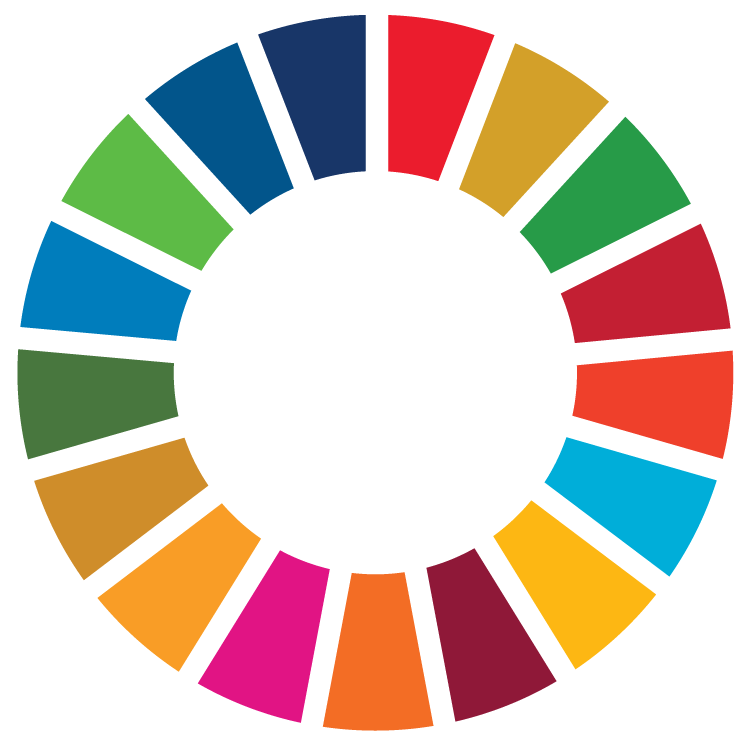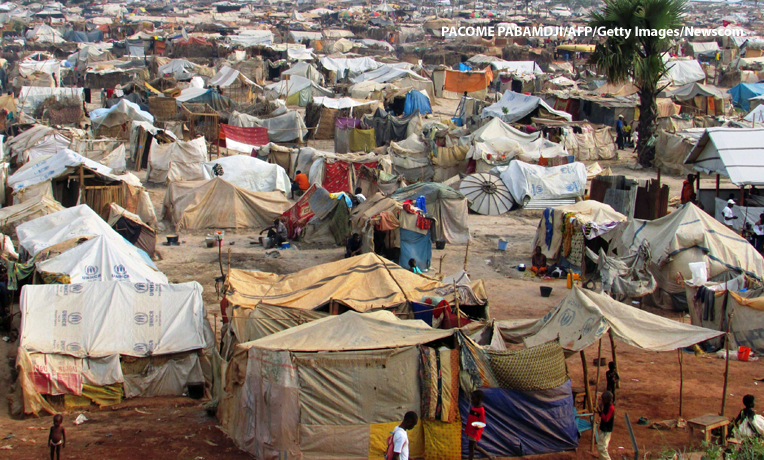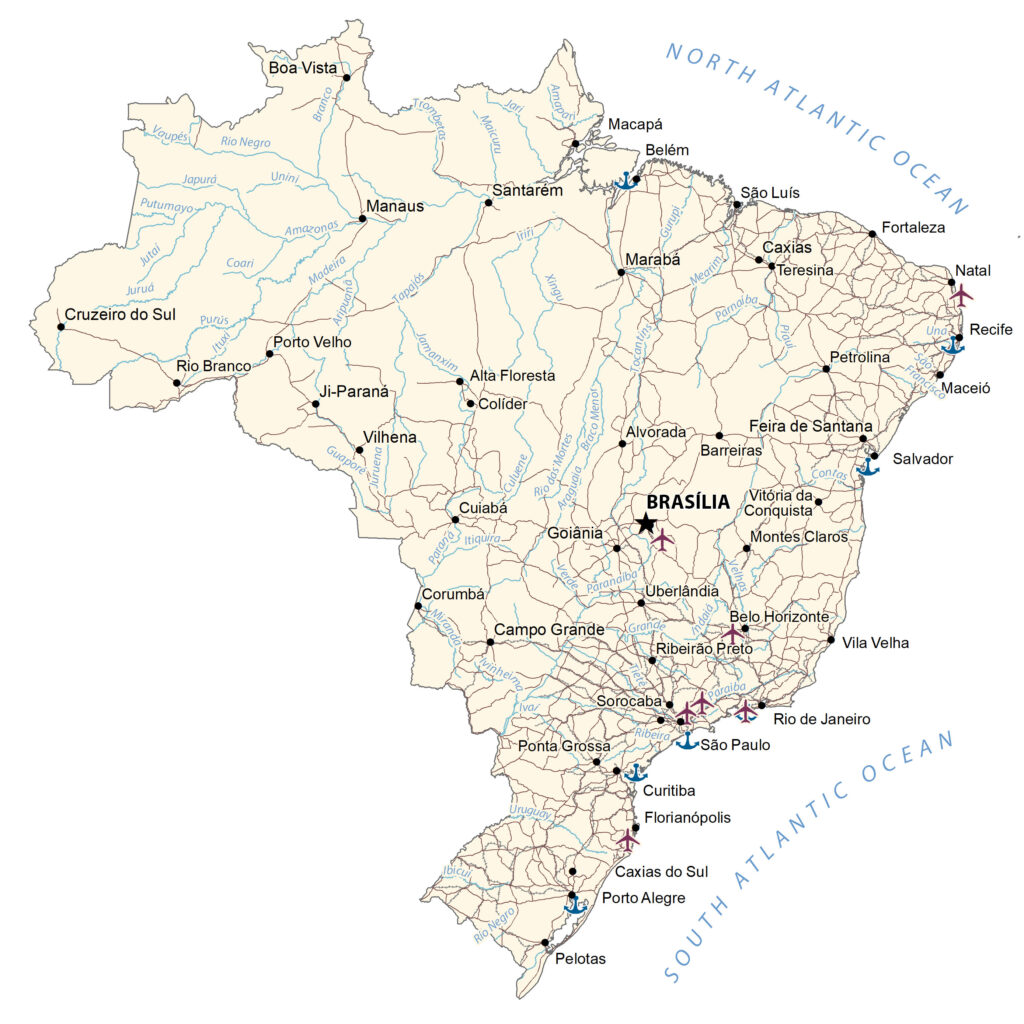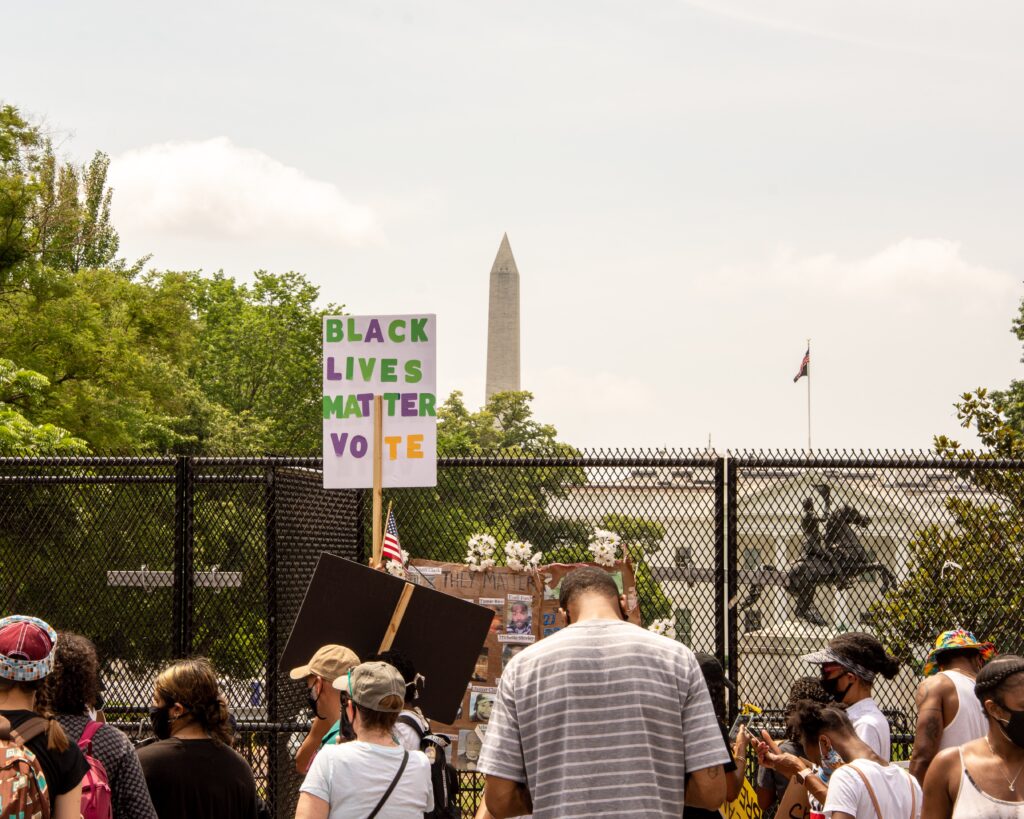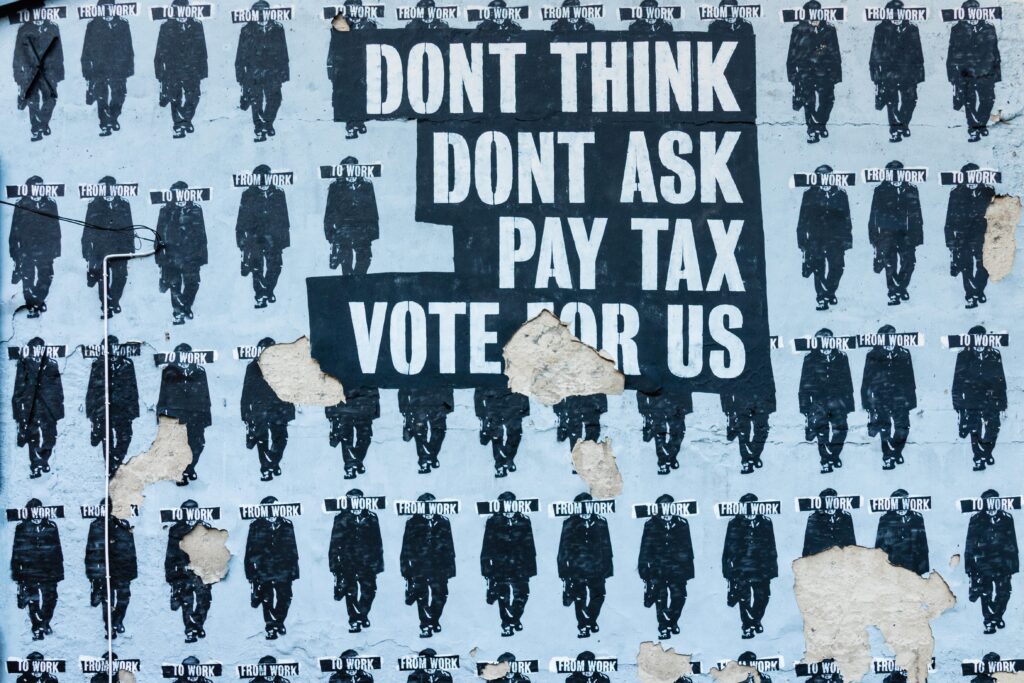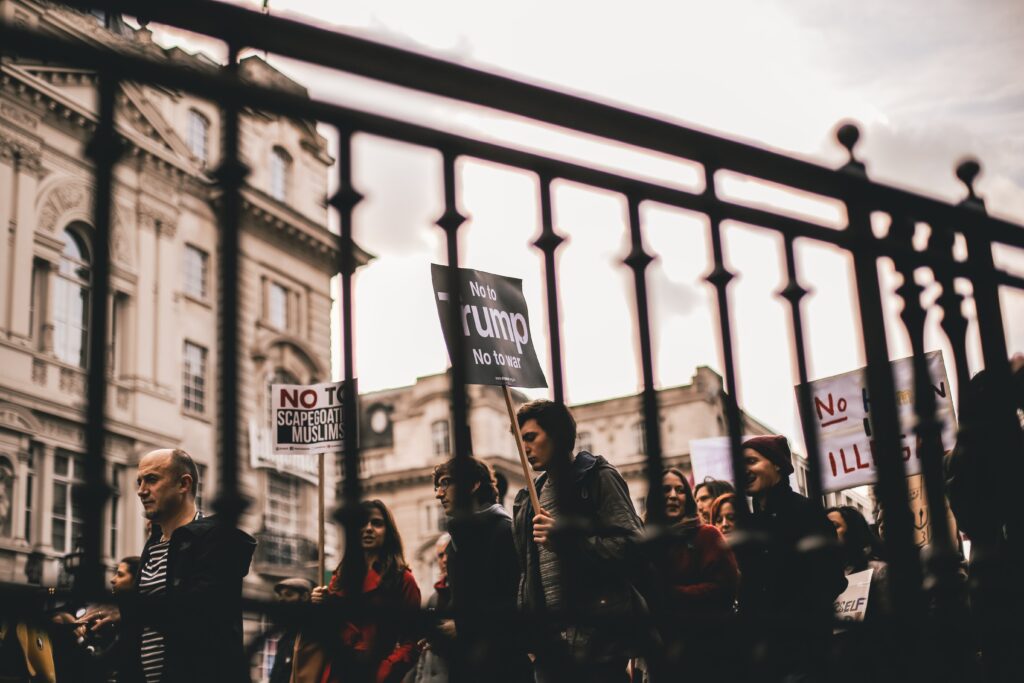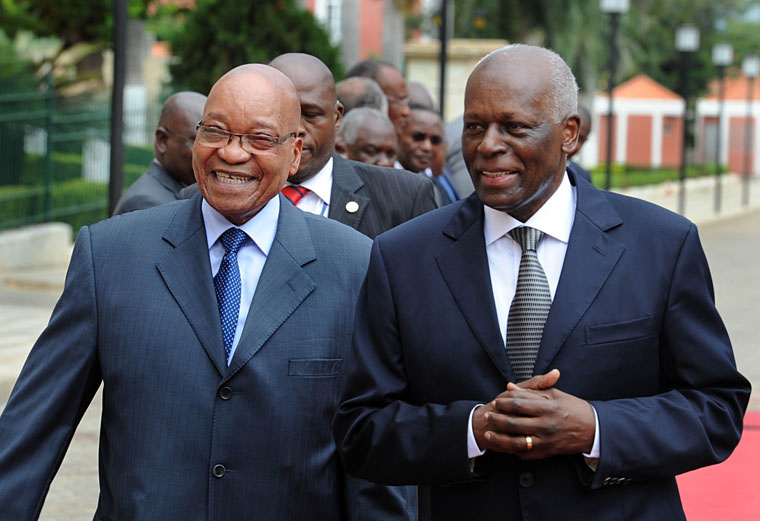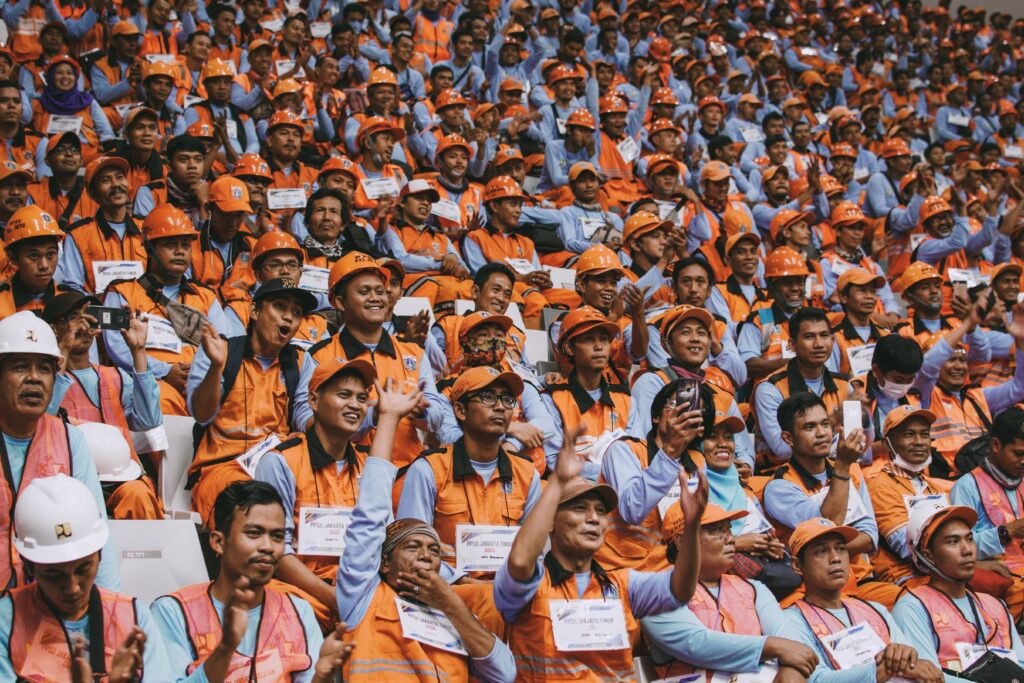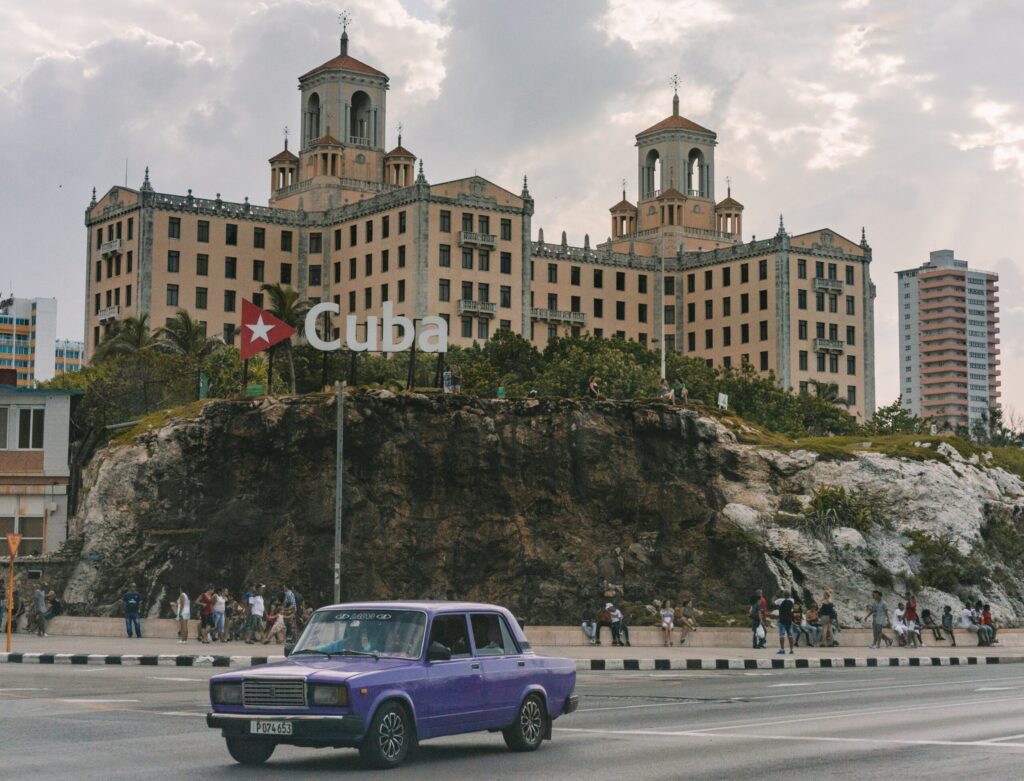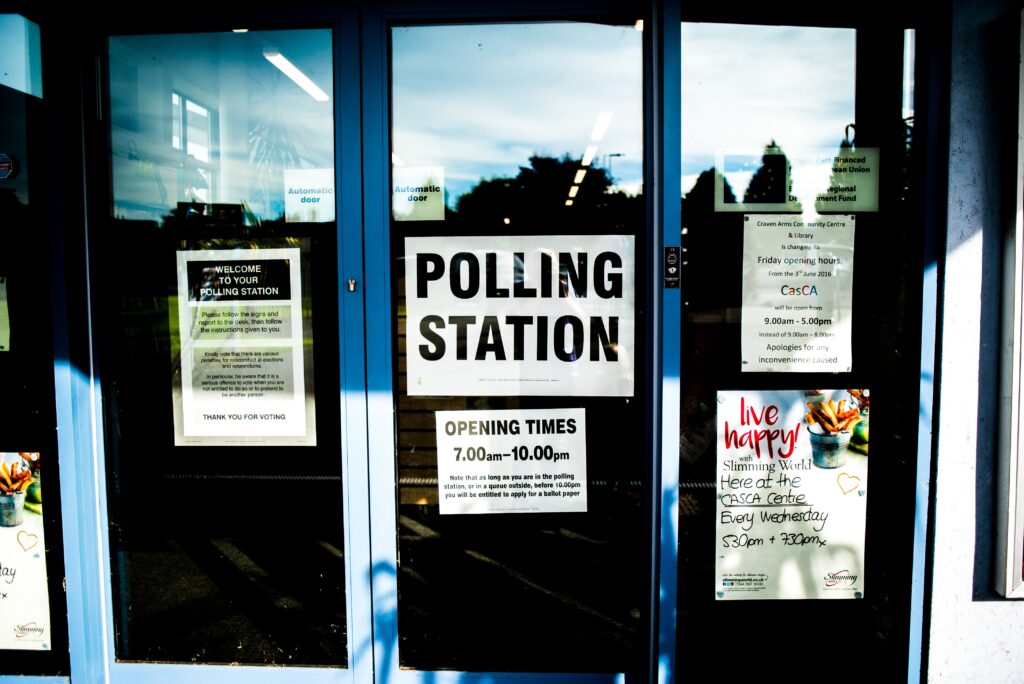Technological transformations open new opportunities and disrupt old patterns. Founded in 2006, Center on Global Transformation (CGT) provides a new framework for vanguard exploration of topics critical to analyzing and shaping the forces of economic change in a deeply interconnected, thoroughly dynamic world. CGT and its Pacific Leadership Fellows program focus on academic inquiry and policy analysis of international issues. CGT’s core mission is to: Foster and disseminate research that addresses global economic and technology transformation Develop and maintain a network…
SDG 16
Advances in ending violence, promoting the rule of law, strengthening institutions and increasing access to justice are uneven and continue to deprive millions of their security, rights and opportunities and undermine the delivery of public services and broader economic development. Attacks on civil society are also holding back development progress. Renewed efforts are essential to move towards the achievement of Sustainable Development Goal 16.
Recent research at the School of Global Policy and Strategy
The Policy Design and Evaluation Lab (PDEL) is an international focal point for rigorous empirical research on the interplay of public policy, technology, and economic development. PDEL combines advanced social science methodology with the power of information technology to design policies and programs that alleviate poverty; promote health, welfare, and security; and enhance accountability. Why PDEL? UC San Diego and its scholars are at the leading edge of a movement to develop a new class of solutions to some of…
Achyuta Adhvaryu
This paper investigates the impact of childhood exposure to conflict on later political beliefs and engagement in 17 sub-Saharan African countries. Despite the well-documented “conflict trap” in which regions with histories of conflict are at higher risk of future conflicts, the study finds that exposure to conflict during childhood (ages 0-14) has minimal standardized effects on later political attitudes and behaviors. This result holds across various definitions, specifications, and data sources. While previous research has suggested that conflict disrupts economic growth and can perpetuate violence, this study suggests that these effects are not primarily driven by changes in political beliefs and engagement during childhood. The research provides insights into the resilience of individuals and communities in the aftermath of
Gordon McCord
Diversity’s effect on violence is ambiguous. Some studies find that diverse areas experience more violence; others find the opposite. Yet conflict displaces and intimidates people, creating measurement challenges. We propose a novel indicator of diversity that circumvents these problems: the location of physical structures at disaggregated geographical levels. We introduce this solution in the context of the Troubles in Northern Ireland. Our data reveal a curvilinear relationship between diversity and conflict-related deaths, with the steepest increase at low diversity, driven by an increase in violence when our proxy for the Catholic proportion of the population rises from 0 to 20 percent. These patterns are consistent with a theory of group threat through exposure.
Renee Bowen
We study learning via shared news. Each period agents receive the same quantity and quality of first-hand information and can share it with friends. Some friends (possibly few) share selectively, generating heterogeneous news diets across agents akin to echo chambers. Agents are aware of selective sharing and update beliefs by Bayes’ rule. Contrary to standard learning results, we show that beliefs can diverge in this environment leading to polarization. This requires that (i) agents hold misperceptions (even minor) about friends’ sharing and (ii) information quality is sufficiently low. Polarization can worsen when agents’ social connections expand. When the quantity of first-hand information becomes large, agents can hold opposite extreme beliefs resulting in severe polarization. We find that news aggregators
Sam Bazzi
We use a policy experiment in Indonesia to show how local political boundaries affect ethnic tension. Redrawing district borders along group lines reduces conflict. However, the gains in stability are undone or even reversed when new boundaries increase ethnic polarization. Greater polarization leads to more violence around majoritarian elections but has little effect around lower-stakes, proportional representation elections. These results point to distinct incentives for violence in winner-take-all settings with contestable public resources. Overall, our findings illustrate the promise and pitfalls of redrawing borders in diverse countries where it is infeasible for each group to have its own administrative unit.
Renee Bowen
We study optimal policy experimentation by a committee. We consider a dynamic bargaining game in which committee members choose either a risky reform or a safe alternative each period. When no redistribution is allowed, the unique equilibrium outcome is generically inefficient. When redistribution is allowed (even small amounts), there always exists an equilibrium that supports optimal experimentation for any voting rule without veto players. With veto players, however, optimal policy experimentation is possible only with a sufficient amount of redistribution. We conclude that veto rights are more of an obstacle to optimal policy experimentation than are the constraints on redistribution themselves.
Jakana Thomas
Although a substantial body of research argues that women provide terrorist organizations with important tactical benefits, few studies draw out the implications of this argument or examine whether female recruits affect the outcomes of terrorist operations. Using data on individual suicide attacks from 1985 to 2015, I show that an attacker’s gender influences the lethality of an attack. However, this effect is conditional upon the gender norms of the state in which the attack occurs. The results demonstrate that a female advantage is more apparent only in societies where a woman’s role in public life is limited; attacks by female suicide attackers are more deadly in countries where women are largely absent from the workforce, civil society, and protest
Francsico Garfias
Property titling enables tax collection and encourages private investment. Yet, governments across the developing world often fail to invest in land registration systems, such as cadastral maps, that record land ownership and values. In this paper, we describe and estimate the fiscal benefits and political costs that elected officials face when deciding whether to invest in this critical fiscal infrastructure. Focusing on Brazilian municipalities, we find that property tax revenue increases by over 10% following cadastre updates. Officials covet this revenue, but they simultaneously seek to secure their reelection, and investing in the cadastre can generate political costs by angering tax-averse voters or undermining clientelism. When these political costs are large, officials who do not face reelection pressures have
2021
Achyuta Adhvaryu and Gaurav Khanna
Evidence suggests that natural resources have driven conflict and underdevelopment in modern Africa. We show that this relationship exists primarily when neighboring regions are resource-rich. When neighbors are resource-poor, own resources instead drive economic growth. To motivate the empirical study of this set of facts, we present a simple model of parties engaged in potential conflict over resources, revealing that economic prosperity is a function of equilibrium conflict prevalence, determined not just by a region’s own resources but also by the resources of its neighbors. Structural estimates confirm the model’s predictions, and reveal that conflict equilibria are more prevalent where institutional quality is worse.
Nico Ravanilla
Community information sharing is crucial to a government’s ability to respond to a disaster or a health emergency, such as a pandemic. In conflict zones, however, citizens and local leaders often lack trust in state institutions and are unwilling to cooperate, risking costly delays and information gaps. We report results from a randomized experiment in the Philippines regarding government efforts to provide services and build trust with rural communities in a conflict-affected region. We find that the outreach program increased the probability that village leaders provide time-sensitive pandemic risk information critical to the regional Covid-19 Task Force by 20%.
David Victor and Gordon McCord
The Zero Carbon Action Plan (ZCAP) will serve as a roadmap for the U.S. based on the latest modeling, research and understanding of decarbonizing six key sectors (power, transport, industry, buildings, food and land use, and materials) supported by technical pathways to zero carbon by 2050, as well as supporting policy recommendations. The ZCAP was designed by a cohort of nearly 100 researchers and 19 Chairs who make up the Zero Carbon Consortium, who are experts in their fields of climate change policy; clean energy pathways modeling; industrial policy high-employment green economies; legislative and regulatory policy; electricity (power) generation; transportation; industry; buildings; sustainable land-use; and sustainable materials management.
Zoltan Hajnal
As America has become more racially diverse and economic inequality has increased, American politics has also become more clearly divided by race and less clearly divided by class. In this landmark book, Zoltan L. Hajnal draws on sweeping data to assess the political impact of the two most significant demographic trends of last fifty years. Examining federal and local elections over many decades, as well as policy, Hajnal shows that race more than class or any other demographic factor shapes not only how Americans vote but also who wins and who loses when the votes are counted and policies are enacted. America has become a racial democracy, with non-Whites and especially African Americans regularly on the losing side.
Gordon McCord and Teevrat Garg
Cash transfers attenuate one-half to two-thirds of the effects of higher temperatures on homicides. Our results not only suggest that social protection programs can help the poor adapt to rising temperatures.
2020
John Ahlquist
How do external economic shocks influence domestic politics? We argue that those materially exposed to the shock will display systematic differences in policy preferences and voting behavior compared to the unexposed, and political parties can exploit these circumstances. Empirically, we take advantage of the 2015 surprise revaluation of the Swiss franc to identify the Polish citizens with direct economic exposure to this exogenous event. Using an original survey fielded prior to the 2015 elections and an embedded survey experiment, we show that exposed individuals were more likely to demand government support and more likely to desert the government and vote for the largest opposition party, which was able to use the shock to expand its electoral coalition without alienating
Tai Ming Cheung
In this paper, Tai Ming Cheung examines the vision and paths put forward by China under Xi Jinping to build a militarily powerful and technologically advanced country, which is also called a “techno-security state.” Xi’s military reinforcement strategy is composed of the three following components―reform, modernization, and innovation; Xi has put particular emphasis on innovation and expanded its application to military arena far more compared to his predecessors. Cheung expects the Chinese techno-security state to make smooth progress under Xi’s leadership based on sufficient financial capacity and good access to foreign technology, despite hurdles such as bureaucratic fragmentation, corruption, and political interference.
2019
Sam Bazzi
We use a population resettlement program in Indonesia to identify long-run effects of intergroup contact on national integration. In the 1980s, the government relocated two million ethnically diverse migrants into hundreds of new communities. We find greater integration in fractionalized communities with many small groups, as measured by national language use at home, intermarriage, and children’s name choices. However, in polarized communities with a few large groups, ethnic attachment increases and integration declines. Residential segregation dampens these effects. Social capital, public goods, and ethnic conflict follow similar patterns. Overall, our findings highlight the importance of localized contact in shaping identity.
Eli Berman
The most common image of world politics involves states negotiating, cooperating, or sometimes fighting with one another; billiard balls in motion on a global pool table. Yet working through local proxies or agents, through what we call a strategy of “indirect control,” has always been a central tool of foreign policy.
Eli Berman
Elections can enhance state legitimacy. One way is by improving citizens’ attitudes toward government, thereby increasing their willingness to comply with rules and regulations. We investigate whether reducing fraud in elections improves attitudes toward government in a fragile state. A large, randomly assigned fraud-reducing intervention in Afghan elections leads to improvement in two indices, one measuring attitudes toward their government, and another measuring stated willingness to comply with governance. Thus, reducing electoral fraud may offer a practical, cost-effective method of enhancing governance in a fragile state.
Zoltan Hajnal
What are relative contributions of race and class to government responsiveness? Why do these inequalities exist in the first place? And under what contexts are disparities in responsiveness reduced? To answer these questions, we assess the congruence between individual-level policy preferences and policy outcomes using the General Social Survey. We match individual spending preferences in 11 policy areas with actual federal spending to see whose preferences are realized. We find that race, more regularly than class, shapes government responsiveness.
Stephan Haggard
Although American political institutions may forestall a reversion to electoral autocracy, we see some striking parallels in terms of democratic dysfunction, polarization, the nature of autocratic appeals, and the processes through which autocratic incumbents sought to exploit elected office.
Francsico Garfias
Limited government supported by elite coalitions can facilitate the development of fiscal capacity by tying rulers’ hands and enhancing their credibility. This paper presents evidence of the effect of the Mining Tribunal, an institution for the mining elite in late colonial Mexico that credibly constrained the Spanish Crown, on the development of fiscal capacity.
Maria Carreri
Municipalities with more competent mayors are associated with more effective use of funds, an increase in long-term investments, and better service provision without an increase in taxes.
2019
Rafael Fernández de Castro
The United States and Mexico face a powerful onslaught of criminal activity damaging both countries. They need to step up cooperation now. U.S. threats are counterproductive. What if Mexico threatened a 25 percent tariff on American corn and soybeans unless U.S. citizens stopped providing the estimated $19-29 billion in drug sale profits each year to Mexican criminal groups? Or, what if Mexico threatened to impose tariffs on American pork until the United States stops the illegal flow of automatic weapons and ammunition across the shared border?
2019
John Ahlquist
Voters often rely on partisan attachments as they evaluate new policy proposals, but does partisanship also color their interpretation of incumbent efforts to entrench themselves in power by changing the “basic rules of the political game”? We explore this question by taking advantage of a rare instance where a single party held a supermajority sufficient to unilaterally amend the constitution and overhaul the electoral system. We embedded a randomized experiment in a panel survey around the 2014 Hungarian elections, providing respondents with different information about recent changes to the Hungarian electoral rules. While respondents were largely pessimistic about the reforms, providing information yielded no significant effects on their views on the elections’ legitimacy. But when information was presented alongside
In the Shadow of the International Criminal Court: Does the ICC Deter Human Rights Violations?
Benjamin Appel
The International Criminal Court (ICC) is responsible for prosecuting crimes against humanity, war crimes, and genocide. Despite the potential for the ICC to deter human rights abuses, scholars and policy makers are divided on the effectiveness of it. This debate, however, is plagued by some important theoretical and empirical limitations. I address the problems in the literature and evaluate whether the ICC can prevent human rights abuses, finding that leaders from states that have ratified the Rome Statute commit lower levels of human rights abuses than nonratifier leaders.
2018
Journal of Conflict Resolution
Barbara Walter
Leaders like Mugabe and dos Santos witnessed what happens to unpopular dictators like Saddam Hussein and Muammar Qaddafi when citizens rebel and the military is unwilling to protect them from the opposition. They have learned that (a) violent rebellion is possible even in the staunchest dictatorships, and (b) if your party (and your generals) no longer support you, you could be killed. Under these conditions, peaceful resignation suddenly seemed like an attractive option.
Victor Shih
Contrary to research on the tradeoff between competence and loyalty, the model in this paper shows that when threats to an authoritarian regime are existential and purges are an option, the dictator will always prefer to employ a competent lieutenant. However, in accordance with the existing literature, credible institutions to ensure the welfare of ousted officials do, indeed, reduce the chance of internal conflict.
Emilie Hafner-Burton
A growing number of developed country governments link good governance, including human rights, to developing countries’ access to aid, trade, and investment. We consider whether governments enforce these conditions sincerely, in response to rights violations, or whether such conditions might instead be used as a veil for protectionist policies, motivated by domestic concerns about import competition. We argue that the two-tiered structure of the GSP privileges some domestic interests at one level, while disadvantaging them at the other.
Richard Feinberg
This book examines the Cuban economy as it makes its early steps into developing a more dynamic market economy.
Eli Berman
The authors show that a revolution in the study of conflict–enabled by vast data, rich qualitative evidence, and modern methods—yields new insights into terrorism, civil wars, and foreign interventions. Modern warfare is not about struggles over territory but over people; civilians—and the information they might choose to provide—can turn the tide at critical junctures.
Benjamin Appel
Why do some postconflict states return to violence, while others remain at peace? Analysts increasingly credit postconflict justice institutions—such as truth commissions, amnesties, reparations, and trials—with contributing to the prevention of conflict recurrence following civil wars. But scholars remain divided about the overall effectiveness of these varied institutions. In this article, we directly engage this debate. We seek to overcome theoretical and data limitations that make it difficult to address the relationship between justice institutions and the likelihood that conflict will recur. We find that only postconflict justice processes that lessen conflict-induced grievances, and thus address individual motivations to rebel, are successful at keeping the peace.
Gaurav Khanna
There is growing awareness that development-oriented government policies may be an important counterinsurgency strategy, but existing papers are usually unable to disentangle various mechanisms. Using a regression-discontinuity design, we analyze the impact of one of the world’s largest anti-poverty programs, India’s NREGS, on the intensity of Maoist conflict. We find short-run increases of insurgency-related violence, police-initiated attacks, and insurgent attacks on civilians. We discuss how these results relate to established theories in the literature. One mechanism consistent with the empirical patterns is that NREGS induces civilians to share more information with the state, improving police effectiveness.
Jesse Driscoll
This article examines the seductions of espionage for professionally vulnerable (untenured) researchers that employ ethnographic methods but are operating in the shadow of market incentives and the Global War on Terror. It argues that for some topics in certain research settings, uncomfortably, the more care and effort one invests in ethnographic best practices, the more likely it is that the researcher will engage in behaviors that could be confused with spycraft.
2017
Maria Carreri
The analysis focuses on oil price shocks and local democracy in Colombia, a country mired in civil conflict. When the price of oil rises, legislators affiliated with right-wing paramilitary groups win office more in oil-producing municipalities. Positive price shocks induce an increase in paramilitary violence and reduce electoral competition.
2017
John Ahlquist
Decades of research across several disciplines have produced substantial evidence that labor unions, on balance, reduce economic disparities. But unions are complicated, multifaceted organizations straddling markets and politics. Much of their equality-promoting influence occurs through their ability to reduce class-based inequity in politics and public policy. Declining unionization across much of the developed world is eroding workers’ bargaining power. Reduced economic leverage puts pressure on union solidarity and weakens labor-based political movements. Important research design problems and significant heterogeneity across unions, regions, countries, and time imply a continued need for more work.
Zoltan Hajnal
Using an array of data and analysis, the book shows that fears about immigration fundamentally influence white Americans’ core political identities, policy preferences, and electoral choices, and that these concerns are at the heart of a large-scale defection of whites from the Democratic to the Republican Party. The authors demonstrate that this political backlash has disquieting implications for the future of race relations in America. White Americans’ concerns about Latinos and immigration have led to support for policies that are less generous and more punitive and that conflict with the preferences of much of the immigrant population.
Renee Bowen
When do voters win? This paper derives conditions under which a democracy will produce policies that favor the voter over special interests in a setting where politicians can be influenced by contributions from special interests, and are also motivated by electoral incentives. The paper examines panel data on the ratio of taxes paid by individuals relative to corporations in the United States and shows that it is negatively correlated with political competition, office-holding benefits, and policy salience.


